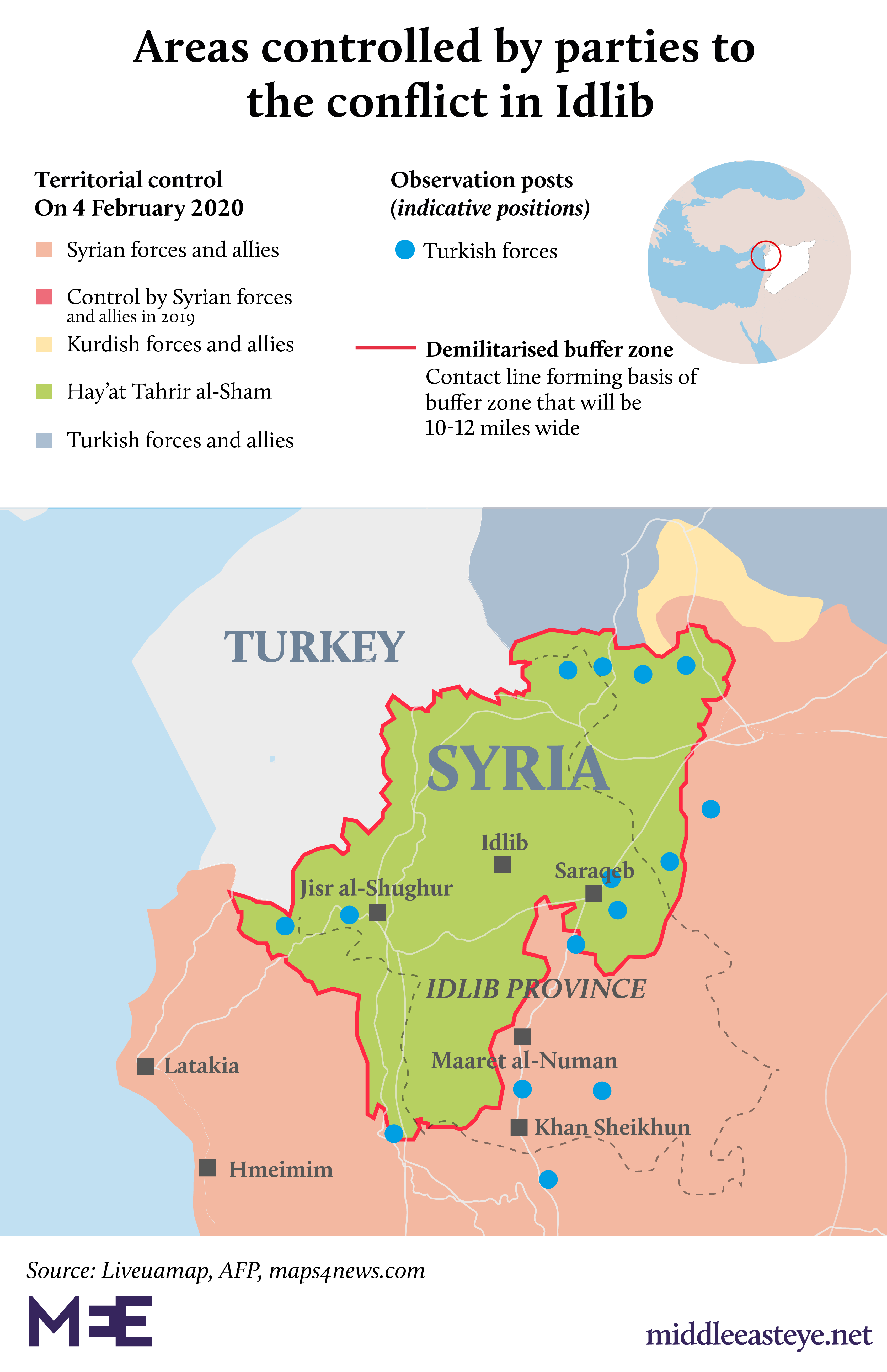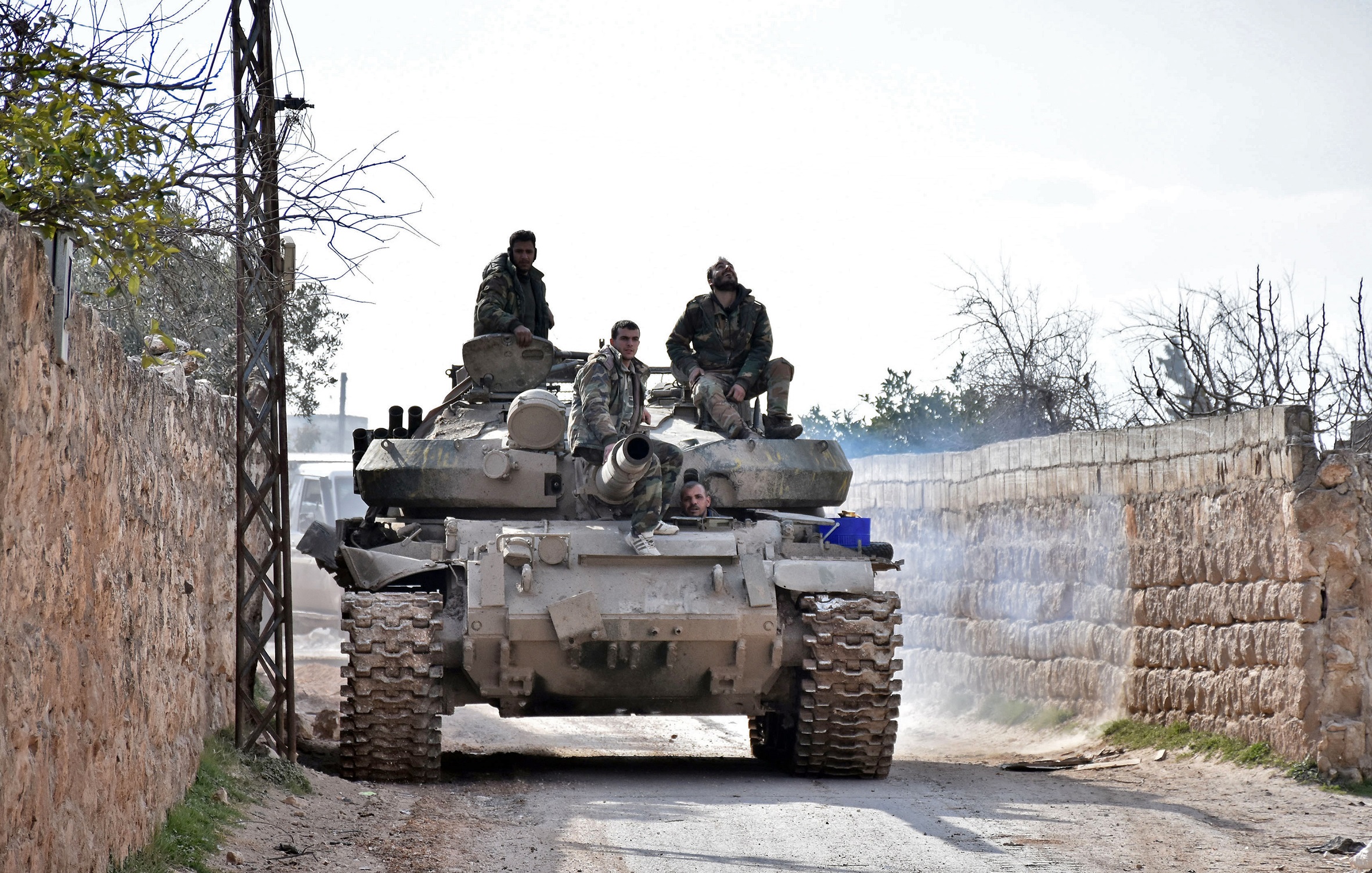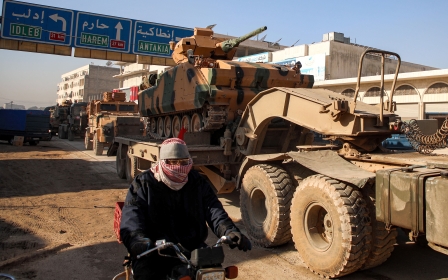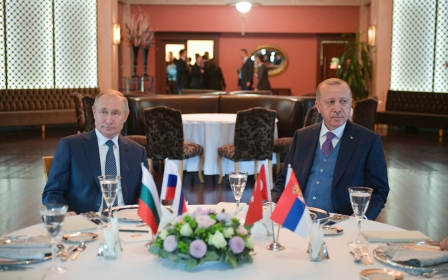Turkey will not allow Assad forces to advance in Idlib, says Erdogan
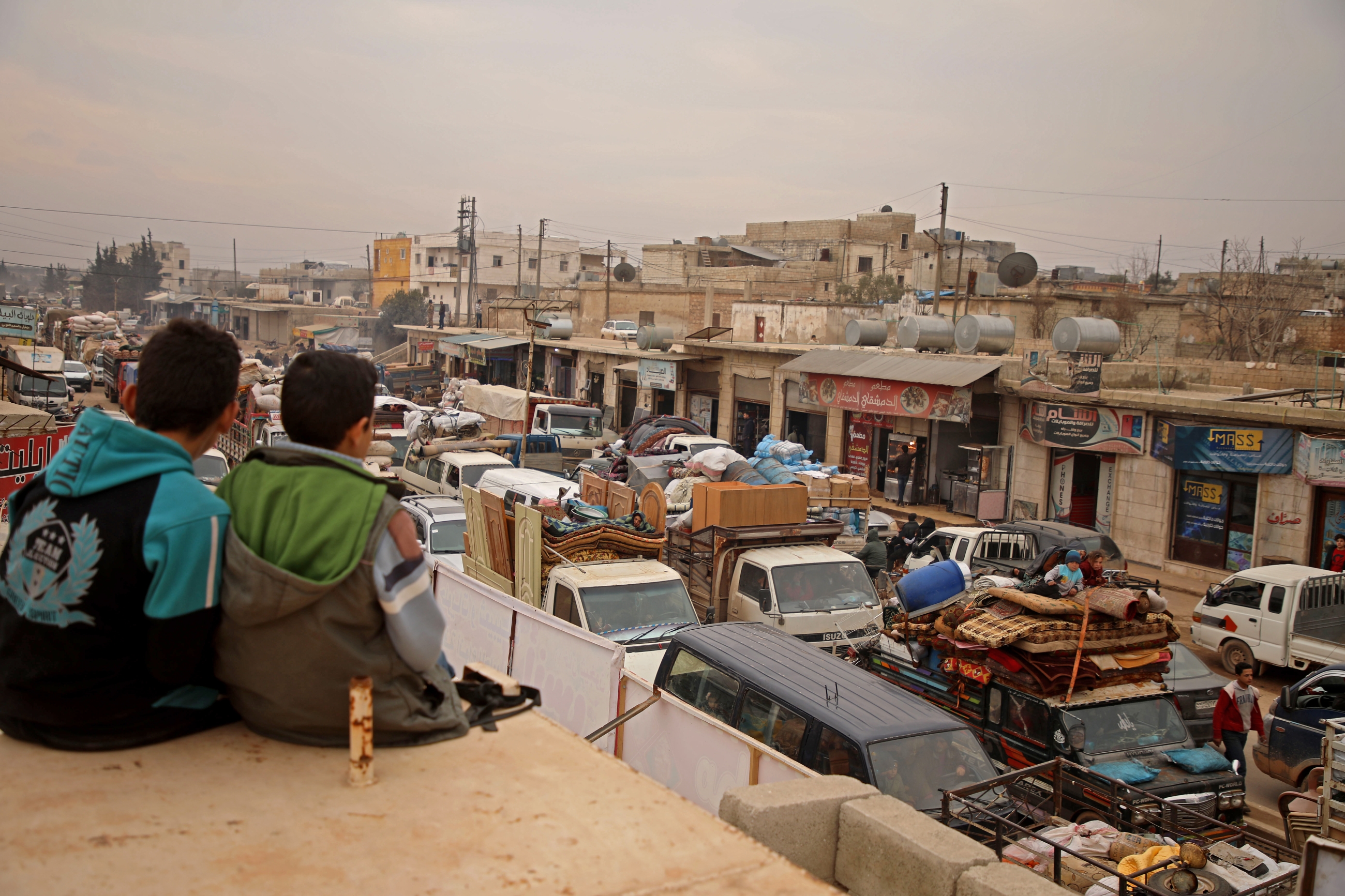
Ankara has warned it will not allow the Syrian government to advance in Idlib, as Syria’s northwest witnesses one of the biggest waves of displacement the country has suffered in nine years of war.
"Syria is right now trying to buy time by driving those innocent and grieving people in Idlib toward our borders," Erdogan said on Tuesday.
"We will not allow Syria the opportunity to gain ground there."
In recent weeks, pro-government forces, backed by Russia, have escalated their military operations in the Idlib region, the last armed opposition bastion in Syria, recapturing a string of villages and some major towns, including the strategic Maaret al-Numan.
New MEE newsletter: Jerusalem Dispatch
Sign up to get the latest insights and analysis on Israel-Palestine, alongside Turkey Unpacked and other MEE newsletters
"Since 1 December, some 520,000 people have been displaced from their homes, the vast majority - 80 percent - of them women and children," David Swanson, spokesman for the UN Office for the Coordination of Humanitarian Affairs, said.
Further escalating tensions in the region, the Turkish and Syrian armies on Monday had their deadliest clash since rebel-backer Ankara sent troops to Syria in 2016.
Government shelling of Turkish positions in Idlib killed at least six Turkish soldiers and wounded nine on Monday. Turkey retaliated with an assault that killed at least 13 Syrian soldiers.
The incident further tested a fragile cooperation between Ankara and Moscow on Syria.
Talks 'without anger'
Speaking on a flight back from Ukraine, Erdogan said there was no need to be in "serious contradiction" with Russia over developments in Syria for now, adding that Ankara and Moscow will sit down to talk about the issue "without anger".
In an agreement reached last year, Russia and Turkey agreed to reduce fighting in Idlib and to each contain their allies’ military activities in northwest Syria.
Konstantin Kosachev, a senior Russian lawmaker, said the situation in Idlib was a "serious test of the strength of the existing Russian-Turkish agreements" in both the province and in northeast Syria.
A Turkish security official said clashes between Turkish and Syrian forces continued intermittently around Saraqeb, a town 15 km east of Idlib city, according to Reuters.
He said Turkey has no intention of withdrawing from any of the 12 observation posts it set up in the area as part of a 2017 agreement with Russia and Iran, even though some posts are now surrounded by Syrian government forces.
Empty towns
The latest wave of displacement towards the border area puts additional pressure on Turkey, which is determined to avoid another mass influx as it already hosts over three million Syrian refugees.
The government offensive to retake the Idlib region is being carried on two fronts, the south of Idlib and from neighbouring Aleppo province to the west.
Almost 300 civilians have been killed since mid-December in bombardment on the Idlib region, the Britain-based Syrian Observatory for Human Rights says.
Government forces on Tuesday intensified their attacks on Aleppo’s western countryside, targeting rebel positions in Kfar Dael, Mansoura and Al-Atareb towns, state-run news agency SANA reported.
SANA also said that government troops were locked in intense fighting with rebel forces, which are dominated by the former Al-Qaeda affiliate Hay'at Tahrir al-Sham, southwest of Saraqeb.
Entire towns have been emptied by the brutal ground offensive and intensive air strikes with huge numbers fleeing closer to the Turkish border, making it one of the largest exoduses since the war started in 2011.
More than half of the country’s pre-war population of 20 million has been displaced since then.
"This latest displacement compounds an already dire humanitarian situation on the ground, when over 400,000 people were displaced from the end of April through the end of August, many of them multiple times," Swanson said.
Three million people live in Idlib province and surrounding areas, half of them having been displaced from their homes by previous government offensives around the country.
UN call to end violence
An AFP correspondent in the town of Hazano, northwest of Idlib, reported that dozens of small trucks, vans and tuk-tuks advanced bumper-to-bumper along the main road.
The vehicles were packed high with belongings that included blankets, carpets, washing basins, chairs, cupboards and doors.
The movement northward comes amid a harsh winter, and Syria’s northern mountainous areas face sub-zero temperatures. Relief efforts have been stepped up once again, according to AFP.
UN chief Antonio Guterres on Saturday called on all sides to halt the violence and allow for the necessary humanitarian effort to take place.
The World Health Organisation warned on Monday that the conditions in the Idlib region may lead to the outbreak of diseases.
The situation "characterised by lack of access and medicine, insufficient hygiene, chaos and mass displacement - poses a significant risk of outbreaks of measles, diarrhoeal diseases and other diseases," WHO regional emergency director Rick Brennan said.
Middle East Eye delivers independent and unrivalled coverage and analysis of the Middle East, North Africa and beyond. To learn more about republishing this content and the associated fees, please fill out this form. More about MEE can be found here.


